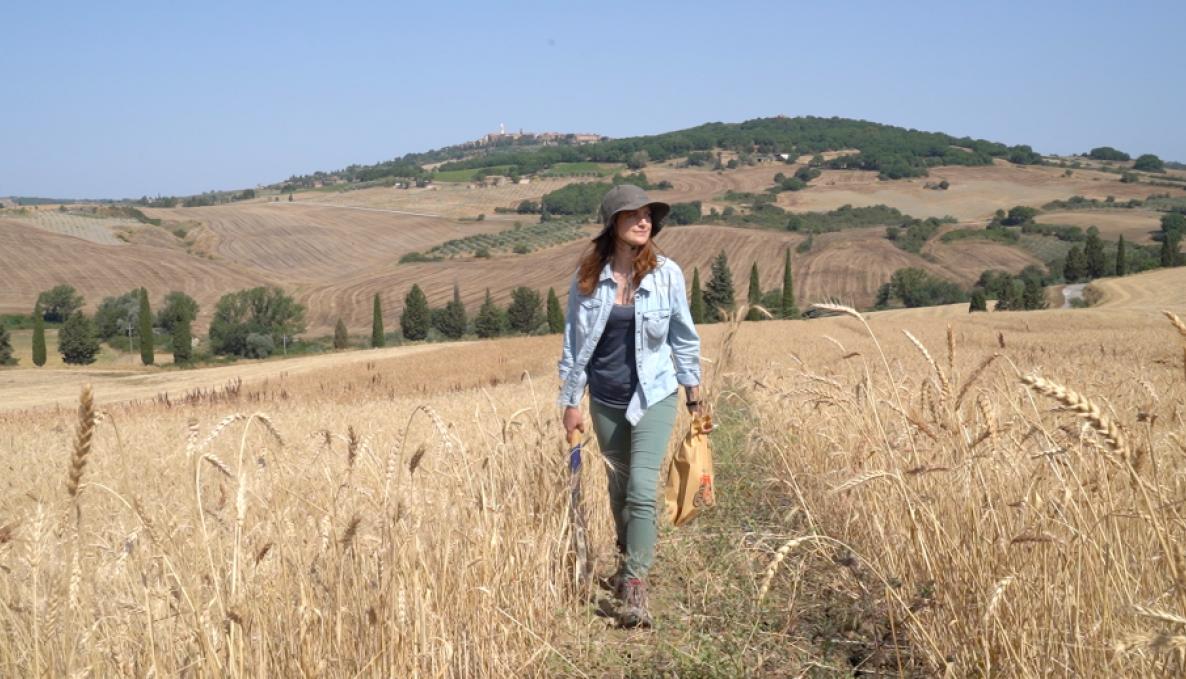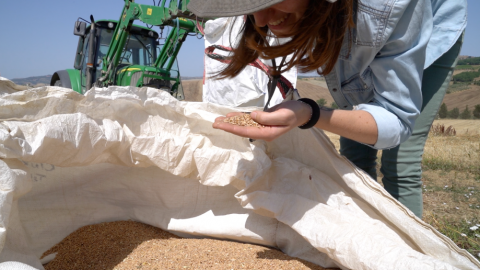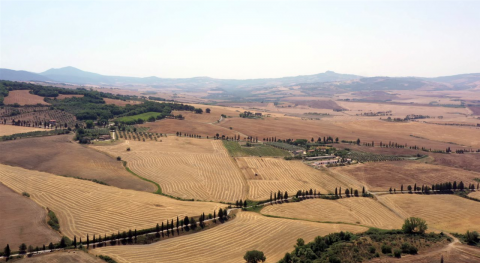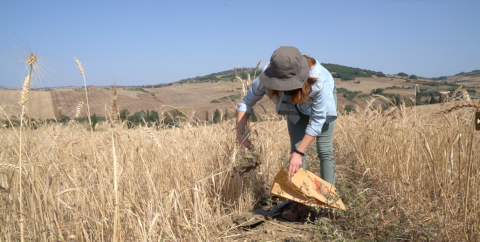Innovative Organic Fertilisers: Sant'Anna School presents at the Biostimulant World Congress the research on the application of fungi that coexist with plants and can improve wheat productivity and the quality of processed products

The Biostimulant World Congress took place in Milan from 28 November to 1 December. It is the most relevant world event on the subject of plant biostimulants, attracting research institutes, manufacturers, distributors, NGOs and many other key stakeholders with the common goal of ensuring a sustainable future for mankind and the planet. 60 speakers, over 1600 visitors and more than 300 industries from 70 countries attend this event to discuss the latest science on biostimulants, and to present cutting-edge research and unpublished results.
A team from the Plant-Soil Interactions group of the Crop Science Research Center (CROP) of the Sant'Anna School, composed of Laura Ercoli, full professor in Agronomy and Herbaceous Crops, Elisa Pellegrino, assistant professor, and Valentina Marrassini, PhD student in Agrobiosciences, was invited to present research demonstrating how the field application of local arbuscular mycorrhizal fungi produces positive effects on wheat productivity and the quality of processed products.
Valentina Marrassini presented the results of her research on the development of innovative microbial biostimulants to support sustainable agricultural production by proposing the field introduction of arbuscular mycorrhizae, fungi gathered in multi-species consortia, native, i.e. isolated from local agricultural soils.
The reintroduction of these species in agricultural soils is a valid tool to increase the efficiency of cultivated plants, in terms of food production and quality, making it possible to reduce the use of synthetic fertilisers that have a negative impact on the environment and human health.
The research is part of the result of studies conducted by the Sant'Anna School as part of the FERTIBIO project, implemented with EAFRD co-funding from the 2014-2020 Rural Development Programme of the Region of Tuscany, in the framework of the Call for Support for the implementation of Strategic Plans and the establishment and management of Operational Groups (GO) of the European Partnership for Innovation in Agricultural Productivity and Sustainability (PEI-AGRI). The project (Elisa Pellegrino coordinates the experimental area) aims to develop the production process of biological fertilisers and their application in different production sectors of Tuscan agriculture.







